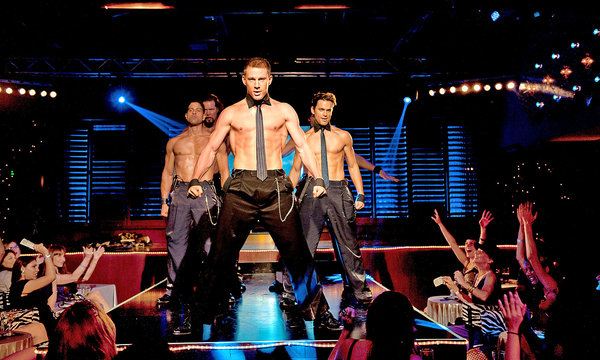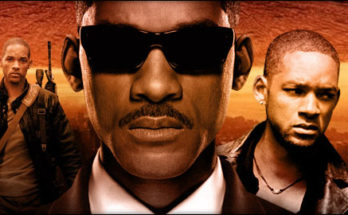Apparently, the world of male strippers isn’t all fun and games as the movie trailers might have you believe. Magic Mike begins with all the laughs, silliness, and comedy one would expect, but halfway through, drama rears its ugly head. A little conflict wouldn’t normally be so unwelcome, but here it curbs the momentum of the spirited atmosphere and ultimately proves to be futile. Perhaps we knew all along that the jovial nature had to give way to a little seriousness (even more so because it’s a Steven Soderbergh film), but its abrupt appearance and trivialization makes it feel all the more pointless.
Construction worker by day and male stripper by night, “Magic Mike” Martingano (Channing Tatum) leads a carefree life full of nonstop parties, promiscuous women, and easy money. When a chance encounter finds him taking rebellious Adam (Alex Pettyfer) under his wing, Mike teaches the young man how to succeed in the business despite disapproval from Adam’s sister, Brooke (Cody Horn). As the up-and-comer becomes captivated with the enticing benefits of his newfound trade, veteran Mike begins to fall for Brooke and longs for a way to pursue his more cultivated dreams that exist outside the realm of ecdysiasts.
The first half of Magic Mike is a lot of fun – perhaps more fun than straight male audiences might expect, considering the blatant target audience for the premise. It combines the anticipated display of glistening, Herculean flesh with laugh-out-loud humor, inspired more by sexual frankness than anything else, including a curtailment of reservation toward nudity and uninhibited, explicit dialogue. But it works – the whimsicalness of demonstrating a usually darkly erotic topic with flamboyant dance and pelvic thrusts that sincerely mock a career steeped in judgment, objectivity, and sadness seems to glamorize the profession. It’s unique and entertaining to see male strippers having a blast (as opposed to the backstabbing, blackmailing, depression, or mental deterioration themes of similar films such as Showgirls, Striptease, or The Wrestler).
It’s actually closer to The Full Monty with its use of awkwardness toward the craft, embarrassment from unambiguous imagery, and the humorous perspective of a novice thrown into a livelihood not designed for the unprepared. McConaughey is hilarious, as is Tatum, while the conversations, coarse as they may be, sound natural and ad-libbed. “This is a serious business I’m running here,” persists Dallas. So why then does the movie have to veer so sharply into bleak drama well beyond the halfway mark? As if realizing too late that no real predicaments were established, Magic Mike creates a few – all of which are hopelessly stereotypical, largely insignificant, and oddly never resolved. Why can’t stripteasers just have a good time without nagging love interests insisting that their occupation is for youngsters without ambition or vision? Why do drugs and violence always come into play? Why must commentary on the state of the economy, exploitation, self-worth, and alcohol-fueled ascendancy arrive? Why can’t exotic dancing be wholly contenting?



